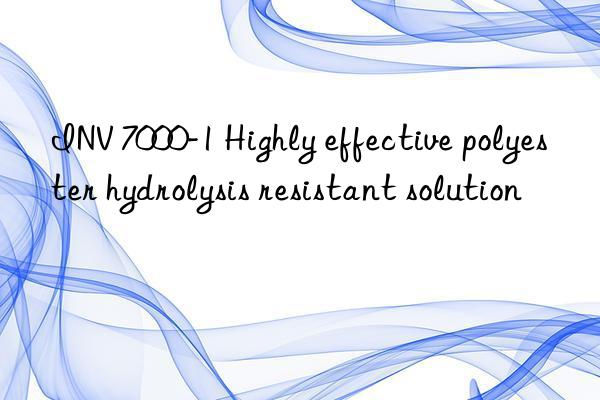
Physical Properties
|
Appearance |
White Or yellowish crystal |
|
Density |
Approx. 0.97g/cm³ |
|
Melting point |
Approx. 50℃ |
|
Viscosity |
16.0 -24.0 mPa·s |
|
Solubility |
Yes Soluble in organic solvents, such as acetone, methylene chloride, etc.; insoluble in water |
Product Performance
INV 7000-1 can react off the active carboxyl groups generated after the hydrolysis of the polyester molecular chain, preventing the further progress of the hydrolysis reaction, thereby effectively inhibiting the decline in mechanical properties of the material caused by hydrolysis , greatly extending the service life of the product.
Technical advantages
· Using the latest synthesis technology, better stability;
· High activity and quick reaction with carboxyl groups;
· High purity, no isocyanate residue;
· Superior to similar foreign products and widely used.
· TPU: Add different amounts of INV 7000-1 to TPU. After a certain aging time, the material will stretchThe retention rate of strength and elongation at break are both much better than the solution without adding INV 7000-1 (70°C boiling test).
Typical applications
· INV 7000-1 can be widely used in PU products, such as TPU, cast PU elastomer, PU adhesive, PU coating, PU Shoe sole solution, PU microporous elastomer, etc., generally added in an amount of 0.5-2.0 phr, can significantly improve the hydrolysis resistance of the product.
· INV 7000-1 is generally used in polyurethane systems in a molten state, and the processing temperature is not lower than 50°C.
· Polyester polyols: The addition amount is 0.5-1.0 phr, which can quickly reduce the acid value of the polyol and improve the hydrolysis resistance of the material.
Storage stability
It can be stored in the original packaging for at least one year under airtight and dry conditions.
Packaging specifications
10kg cold-rolled iron drum or 25kg PE-lined paper drum.
Safety information
See the safety data sheet of INV 7000-1.

 微信扫一扫打赏
微信扫一扫打赏

